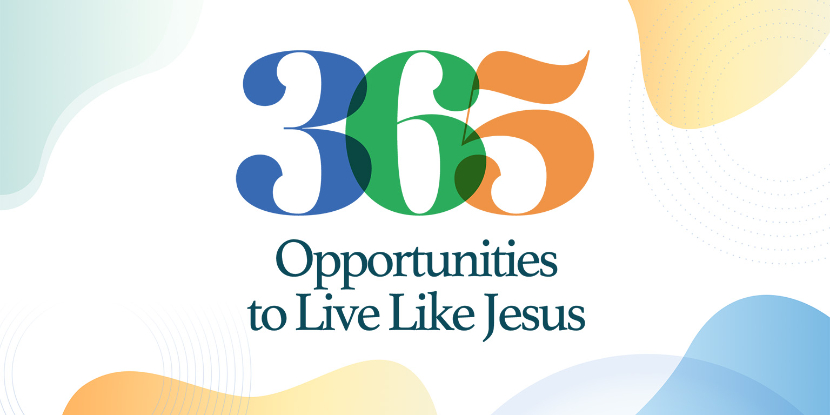From the August 2024 Issue

Online Exclusive: From This Point Forward
Delivering the Good News
It was known as Operation Overlord. And it would become the largest invasion in the history of the world’s armies. It began on June 6, 1944—known as D-Day—and ended on August 30 that same year when German armies began their eastward retreat from France, across the River Seine, back toward Germany.
Operation Overlord had all the components of a large-scale movement:
The mission of the Great Commission was, and remains, clear: “make disciples of all the nations” (Matthew 28:19).
The man. The American general, Dwight D. Eisenhower, was appointed the Supreme Allied Commander over all of the forces that would participate in Operation Overlord.
The men. While Eisenhower established overall direction, other leaders like British General Bernard Montgomery, undertook heavy responsibility. But the ultimate responsibility for fulfilling the mission fell to the two million plus Allied soldiers who were in France by the end of August in 1944.
The mission. The mission of Operation Overlord was clear: Defeat the Axis powers, led by Germany’s Adolf Hitler, who were threatening to conquer Europe. Or, said a different way, the mission was to free the inhabitants of Europe from a brutal, racist, totalitarian future.
The means. When we look back at what the Allied forces accomplished, it seems hard to believe given the military and communications technologies available today. The logistics of the D-Day landing on the beaches of Normandy alone were staggering: more than 5,000 naval vessels, 160,000 troops, 1,200 aircraft—plus all the support resources needed to keep an invading army fed and field-ready for an indefinite future.
Until Christ comes again, our mission remains clear: deliver the Good News.
Jesus’ Great Commission: A.D. 30
All commissions—military, spiritual, business, governmental—must have the same five components found at work in Operation Overlord. Consider the Great Commission given by Jesus to His disciples in A.D. 30.
The meeting where the Commission was created and delivered took place on a mountain in Galilee in the days between Jesus’ resurrection and ascension (Matthew 26:32; 28:7, 16).
The man was, of course, Jesus Christ. There are implications from recognizing Him as the Designer and Deliverer of the Great Commission. His Lordship—Son of God and Son of Man—makes the Great Commission a divine-human partnership. It is an obligation incumbent upon all who profess to follow Him. His Commission is based on His divine authority (Matthew 28:18).
The men were “the eleven disciples” (Matthew 28:16)—a replacement for the disgraced Judas had not yet been chosen. The original group of eleven disciples to whom the Great Commission was given has grown to more than two billion Christians worldwide today—an indication that the original men took the Commission seriously.
The mission of the Great Commission was, and remains, clear: “make disciples of all the nations” (Matthew 28:19). Making disciples is accomplished by three activities: going, baptizing (incorporating), and teaching (Matthew 28:19-20). It is at this point that Christ’s Great Commission takes on the traits of an invasion mission—like Operation Overlord. First John 5:19 says, “The whole world lies under the sway of the wicked one.” Jesus came to invade the kingdom of darkness with the message of the Kingdom of God and His light (Colossians 1:13), setting free spiritual captives (Luke 4:18-19). It is God’s truth that breaks the chains of Satan’s lies (John 8:32, 44)—thus the emphasis on teaching the words of Jesus in fulfilling the Great Commission. Invading the kingdom of darkness and lies with the Good News of God’s truth is at the heart of the Great Commission.
The means: It is here where the Great Commission has changed the most in the last two thousand years—and most emphatically in the last two decades. Not the mission, but the means we have at our disposal for fulfilling it. Think of the first century means: traveling by foot or ship; writing on parchment scrolls; open-air preaching. They had none of the technology available to us today: electricity, the Internet, publishing in print or digital formats, audio, video, television, film...the list goes on.
Jesus’ Great Commission: Today
In most ways, the Great Commission has not changed in two thousand years: the meeting, the man, the men (successive generations of Christians), and the mission—all remain the same. But the means!
Sometimes I wonder what the apostle Paul, and his co-laborers in the Gospel, would think about the technologies at our disposal today. The Word and worship of God are experienced by tens of thousands of people around the world via the Internet. Churches and ministries like ours are coming up with never-before-imagined ways to share the Word of God.
That’s what fulfilling the Great Commission is all about—using every God-honoring means available to us to preach and teach the Word of God and deliver the Gospel to the whole world.
Only a little over one-fourth of the world’s population today professes the name of Jesus as their Savior and Lord. And there are still some groups in the world today that have not been reached. That is, they have no means of sustaining a Gospel witness in their society. There may be a few Christians, but not enough to plant churches and extend the Gospel throughout their society.
But remember: The mission of the Great Commission has not changed. Jesus still expects us to “make disciples” in every nation, incorporating them into churches, and teaching them the Word of God. Until Christ returns, our mission remains unchanged.
The Great Commission and You
You and I weren’t with the Lord on a mountain in Galilee in A.D. 30 when He gave the eleven disciples their marching orders to invade the world with the light of His life and truth. But we might as well have been since we are their spiritual descendants. We have inherited the Great Commission from them. Our responsibility covers four levels of our life.
Home. Are we honoring the Word of God in our home and personal life? We can’t pass on to others what we are not embracing for ourselves.
Church. Are we involved in our church’s evangelistic, discipleship, and missionary endeavors by praying, giving, and even going?
Community. Are we sharing the love of Christ in our community on an unconditional basis?
World. “All the nations” (Matthew 28:19); “God so loved the world” (John 3:16); “Not willing that any should perish” (2 Peter 3:9). These and other phrases in Scripture remind us that God’s heart beats for the world. And as His heart beats, so must ours. Until Christ comes again, our mission remains clear: deliver the Good News. May we invade our world, at every level, with the love, light, and life of Christ.
More Articles
This Month's Magazine Resource

What God Promises You
Using Scripture and powerful, real-life stories, Dr. Jeremiah helps you not just understand these promises but also claim them as your own.
Subscribe Now
Each month, read articles and devotionals from Dr. David Jeremiah that will encourage, challenge, and strengthen your walk with the Lord.














 Turning Point for God is a tax-exempt, not-for-profit, religious corporation as defined under Section 501(c)(3) of the Internal Revenue Code. Your donation gift(s) are very much appreciated and may qualify as a charitable deduction for federal income tax purposes.
Turning Point for God is a tax-exempt, not-for-profit, religious corporation as defined under Section 501(c)(3) of the Internal Revenue Code. Your donation gift(s) are very much appreciated and may qualify as a charitable deduction for federal income tax purposes.




